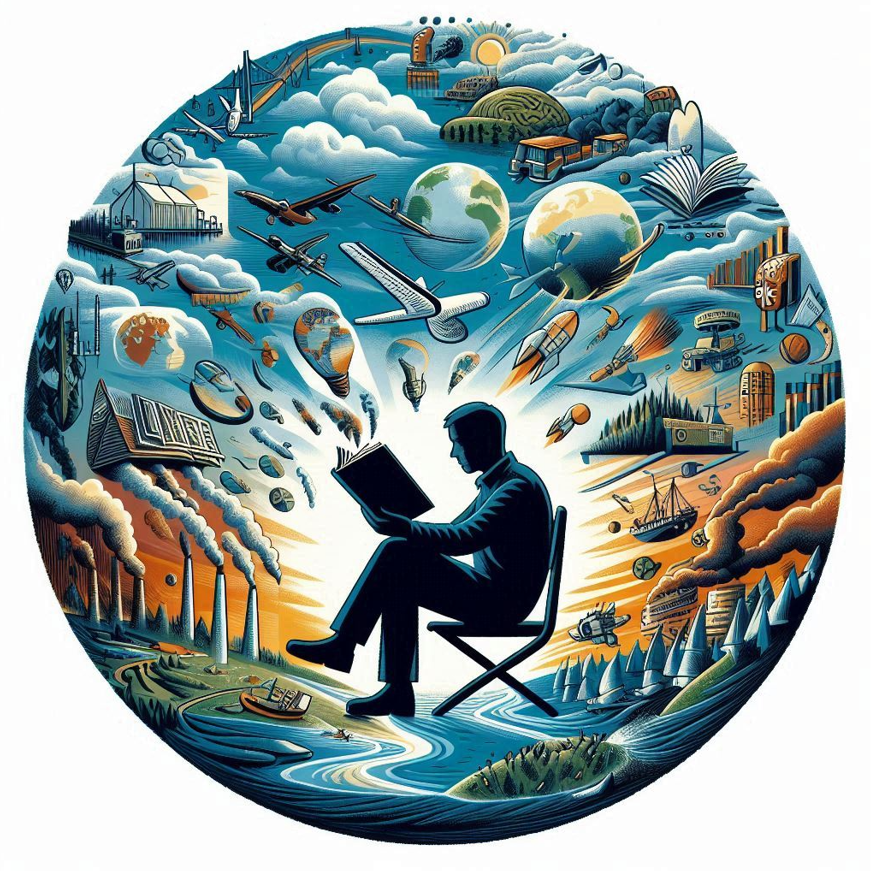The World Economic Forum (WEF) has released the 20th edition of "The Global Risks Report 2025". This annual report provides a comprehensive analysis of the numerous factors shaping global risks, including technological advancements, geopolitical shifts, climate change, and economic developments.
By examining these factors and their complex interconnections, the report offers valuable insights into the evolving nature of global challenges. It highlights how issues like climate change and environmental degradation, once perceived as long-term concerns, are now manifesting as immediate threats with profound implications for societies and economies worldwide.
 |
| Global risks landscape: An interconnections map |
Climate and Environmental Risks: From Long-Term Concern to Immediate Priority
The Global Risks Report 2025 begins with a striking observation in its preface: "For 20 years, environmental issues have consistently been classified as long-term risks, but this year they have emerged as one of the top short-term concerns." This shift reflects the growing impact and awareness of climate change and natural disasters.
The report highlights the widespread occurrence of extreme weather events—such as droughts, typhoons, and wildfires—that have caused significant damage across the globe in 2024. Additionally, issues like ocean waste and microplastic pollution are increasingly affecting daily life, underscoring the urgent need for action.
This marked change in perception illustrates how the tangible effects of environmental degradation are no longer abstract future threats but pressing challenges of the present.
 |
| Current Global Risk Landscape |
 |
| Current Global Risk Landscape |
Short-Term Optimism vs. Long-Term Challenges in Global Risks
The Global Risks Report 2025 reveals a notable contrast between short-term (2-year) and long-term (10-year) outlooks. Short-term projections are comparatively more optimistic, with the "Stormy" and "Turbulent" categories being 12% and 14% lower, respectively, than in the long-term outlook. Meanwhile, the "Unsettled", "Stable", and "Calm" categories are 22%, 3%, and 1% higher.
However, this disparity underscores a sobering reality: as time progresses, the likelihood of an increasingly unstable future rises, signaling growing challenges in the coming decades.
Among survey respondents, 23% identified "State-based armed conflict" as the most critical risk, reflecting concerns about geopolitical instability. This was followed by "Extreme weather events" (14%), "Geoeconomic confrontation" (8%), and "Misinformation and disinformation" (7%).
These findings highlight a complex interplay of risks, with climate, geopolitical, and informational challenges ranking prominently among the threats shaping our collective future.
 |
| Short- and long-term global outlook |
Extreme Weather and Biodiversity Loss: Growing Concerns for the Future
Extreme weather events rank as the second most critical concern in the short-term (2 years) and take the top position in the long-term (10 years), highlighting escalating fears about their increasing frequency and severity. This trend suggests that the dangers associated with extreme weather are expected to grow significantly in the coming years.
In addition, biodiversity loss and ecosystem collapse has risen sharply in concern, ranking second in the long-term outlook (10 years), a significant deterioration compared to its position in the short-term outlook.
The persistent use of fossil fuels such as oil and coal continues to drive pollution and exacerbate climate change, contributing to more frequent and intense heatwaves, heavy rainfall and flooding, typhoons, and wildfires worldwide. These changes underscore the urgent need for global efforts focused on adaptation and resilience to mitigate and respond to these escalating threats effectively.
Photo and content sources: weforum.org - Global Risks Report 2025





